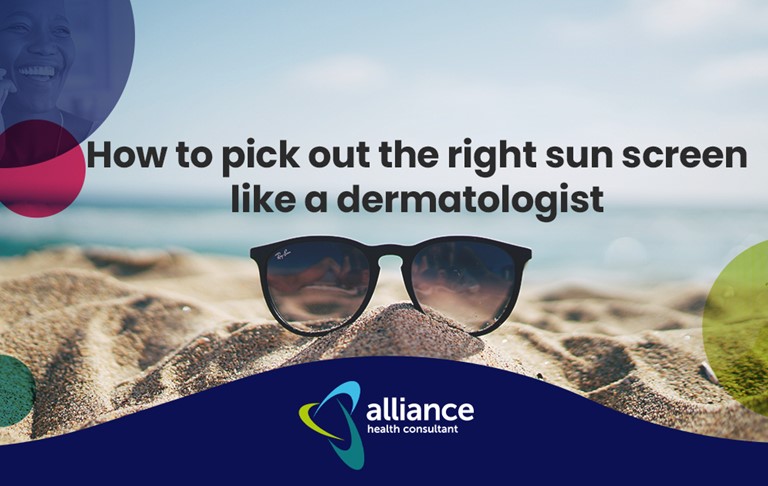How to pick out the right sun screen like a dermatologist
As we enter the beautiful season of summer, the most common thing for us all to do is spend our days outside catching some sun rays. We all know that it is important to take precautions as excessive exposure to UV rays increases your risk of sun cancer. With so many choices of sun screen on the market today, it can be overwhelming to pick the right sun screen for you. That's why we have written a guide to picking out the right sun screen like a dermatologist.
What is SPF?
There are two types of radiation that make up sunlight: UVB and UVA. UVB rays can burn your skin and UVA rays can cause wrinkles and age your skin. If you are too exposed to either, this can potentially lead to skin cancer. That's why it is important to pick a sun block which reads 'broad-spectrum' or 'full spectrum' as this can help protect you from both. SPF stands for Sun Protection Factor. This is how we measure the protection from the sun's UVB rays. A sun block with an SPF 15 blocks 93% of UVB rays, SPF 30 blocks 97% and SPF 50 blocks 98%. An expert recommends staying between SPF 30 and SPF 50.
The difference between a chemical sunscreen and a physical sunscreen?
There are two types of sunscreens: physical and chemical. The main difference between the two are the ingredients. Mineral sunscreens user two natural mineral ingredients: zinc oxide and titanium dioxide. These work by sitting on top of your skin to protect it and reflects away the UV rays. Chemical sunscreens contain active ingredients that work by absorbing the UV rays and converting it into low energy heat.
Between the two types, which one you choose is all down to preference as protection is better than no protection. Chemical sunscreens are able to provide highly effective protection however mineral/physical sunscreens are generally the healthier option in the long-term but they do take longer to rub into your skin and needs to be applied more frequently.
Should I pick a waterproof sun screen?
The unfortunate truth about sun screen is that 'waterproof' sun screen does not exist. Instead, you will find the term 'water-resistant' which means the sunscreen will maintain its SPF after 40 minutes of water immersion. All water-resistant products must be reapplied every 2 hours or when getting out of the water.
Choosing the right sun screen for your skin type
If you have oily or acne prone skin, ensure that your sunscreen is labelled as 'non-comedogenic' which means that it has been shown to not block pores. For skin that's no the drier side, look for a sunscreen that is more moisturising or containing hydrating ingredients such as ceramides and hyaluronic acids. For skin that is on the sensitive side, opt for a sunscreen featuring ingredients such as zinc oxide and titanium dioxide to protect the skin as these won't burn or sting your eyes.
It's important that we do our best to protect our skin from potential causes of skin cancer. If you need specialist consultant help, Alliance Health Consultant are just a call away. Drop us a line on 0808 178 1289 to find out more!

